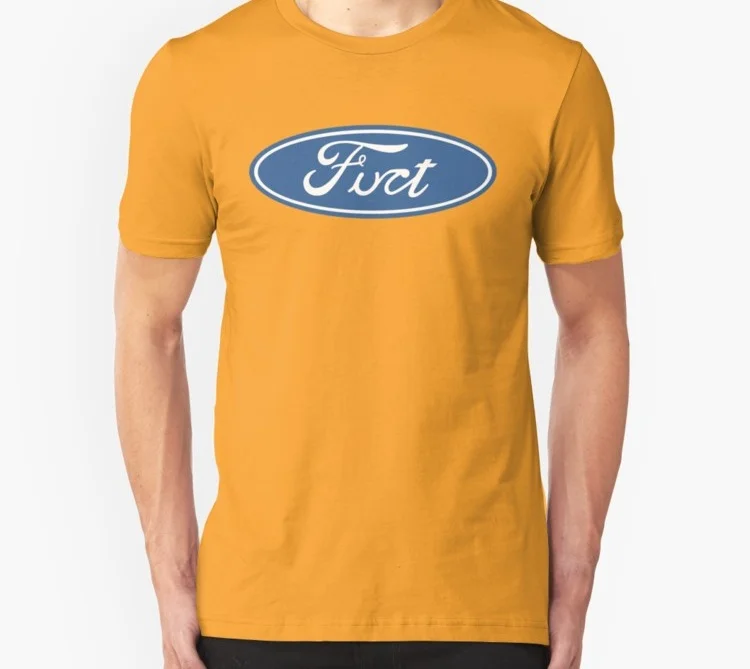It’s not every day that the fashion and legal worlds truly collide, but that’s what happened yesterday when the Supreme Court heard oral arguments in Iancu v. Brunetti. The case involves California skate/steetwear brand “Fuct.” So as a lawyer, I had to write about it.
Fuct, founded by Erik Brunetti in 1990, has been a fixture of skate and streetwear culture since its founding. Brunetti’s lawyer, John Sommer, who also happens to be general counsel at Stussy, promised that any references to “vulgar terms” would not be necessary during his oral argument, or if necessary, “the discussion will be purely clinical, such as when medical terms are discussed.”
That’s why the government’s counsel, the Department of Justice’s Deputy Solicitor General referred to the brand as a mouthful, “the equivalent of the past participle form of the paradigmatic profane word in our culture,” eliciting smirks and chuckles from the usually stoic Supreme Court crowd.
That the setting. Here’s the case: Fuct is appealing the The U.S. Patent and Trademark Office (“USPTO”) and the Trademark Trial and Appeal Board’s (“TTAB”) refusal to register Fuct as a trademark, pointing out that it’s just the “past tense of the word f*ck.”
U.S. trademark law prohibits certain trademarks from being registered. For decades, this has meant prohibiting registration of trademarks that are deemed offensive in certain ways — specifically those that may be “disparaging” to individuals or groups, and those deemed “scandalous” or “immoral.”
This case comes after the Supreme Court’s 2017 decision in Matal v. Tam in which the Court struck down the prohibition on registration of “disparaging” trademarks on the basis that the provision constituted viewpoint discrimination in violation of the First Amendment. That case involved an individual attempting to trademark his band name, which the PTO had deemed to be an offensive slur and thus not eligible for trademark registration.
Now, in Iancu v. Brunetti, the court will consider whether the prohibition on registration of scandalous and immoral marks is unconstitutional. To determine whether a mark is scandalous and immoral, a trademark examiner is to consider whether the general public would find the mark “shocking to the sense of truth, decency, or propriety; disgraceful; offensive; disreputable; giving offense to the conscience or moral feelings.”
While the USPTO and TTAB deemed the Fuct mark vulgar and therefore unregisterable, the U.S. Court of Appeals for the Federal Circuit found that the bar on registering scandalous and immoral trademarks is a content-based restriction on free speech in violation of the First Amendment, thus reversing the TTAB’s holding (though it did agree with the TTAB on the vulgarity of the mark).
The government appealed the decision, arguing that it has the responsibility to refuse registration of trademarks that consist of “scandalous” material, as exemplified by Fuct.
During oral arguments, some of the Supreme Court Justices seemed to grapple with the existence of the streetwear brand. Justice Ruth Bader Ginsburg, for example, asked whether a composite of 20-year-olds would find the Fuct mark shocking, referring to the USPTO’s standard of refusing trademark recognition to a mark under the scandalous provision when a “substantial composite of the general public” would find it shocking or offensive. The question exemplifies her understanding of the core demographic for the Fuct brand.
Justice Neil Gorsuch, meanwhile, referred to the appendix of a brief which provides a four-page guide to those inconsistencies with examples that would make any sailor blush.
“There are shocking numbers of ones granted and ones refused that do look remarkably similar,” Justie Gorsuch observed. Have some fun with it here, but to take the first example: “ass” and “aholes” have been registered, while “asshole” and “don’t be an ahole” have been denied. Gorsuch seems to imply that the inconsistency alone makes the law unworkable.
Sommer then took to the podium to explain Fuct’s position that the trademark denial amounts to viewpoint discrimination and is a violation of the First Amendment. He mentions that the goods in question are “not exactly sold at Walmart.”
But Chief Justice Roberts observes that even if Brunetti’s shirts aren’t sold at Walmart, they’re “going to be worn on people walking down through the mall… For parents who are trying to teach their children not to use those kinds of words, they’re going to look at that and say, well, look at that, and then, you know, they’re going to see the little trademark thing and say, well, it’s a registered trademark.”
Putting aside the fact that it seems doubtful that (1) people even hang out at malls anymore, (2) people are wearing Fuct clothes when they walk around these malls, and (3) upon seeing these clothes, a parent and child would have an in-depth conversation about the nuances of U.S. trademark law, Roberts is actually trying to counter Justice Ginsburg’s line of questioning from earlier. It’s not a subset of 20-year-olds, as Ginsburg suggested, that matters when determining whether a trademark can be registered. It’s a “substantial composite of the general public.”
The Court will issue its ruling sometime this summer. Seeing as the Matal v. Tam decision was unanimous, it seems like the Justices will strike down the prohibition on scandalous and immoral marks. It’s something liberal and conservative Justices generally find common ground on. This could open the door for more First Amendment challenges to trademark law. Maybe someone should trademark “Dumb Starbucks” now.
